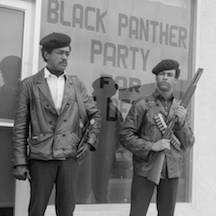 In 2020 the University of California Berkeley Library acquired a digital database of FBI records on the surveillance of African Americans throughout the 20th century, expanding the trove of federal records the Library has assembled over the years. The library is working to make it easier for researchers to access these files.
In 2020 the University of California Berkeley Library acquired a digital database of FBI records on the surveillance of African Americans throughout the 20th century, expanding the trove of federal records the Library has assembled over the years. The library is working to make it easier for researchers to access these files.
In 1967, the FBI quietly unleashed a covert surveillance operation targeting “subversive” civil rights groups and Black leaders. The objective, according to an FBI memo was to “expose, disrupt, misdirect, discredit, or otherwise neutralize” the radical fight for Black rights — and Black power.
The new collection, acquired from Gale, an educational publisher and online database, contains surveillance files of many important Black figures and organizations of the day — including Thurgood Marshall, Marcus Garvey, the NAACP, and many others. Additional records, including Hoover’s confidential documents and FBI files on Martin Luther King Jr. and the Student Nonviolent Coordinating Committee, or SNCC, are also available through the Library via ProQuest, the massive online repository.
“These documents reveal and confirm the kind of root investment in anti-Blackness and quelling dissent that has long been part of our government structure,” says Leigh Raiford, a professor of African American studies at the University of California, Berkeley. “I’m hoping that a new generation of researchers will learn new lessons for how to outmaneuver these attempts.”

